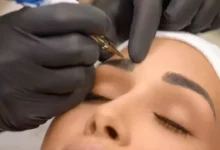According to The Lancet, Breast Cancer Deaths Are Expected to Rise by 50% by 2024; Monitor Warning Symptoms and Signs
Warning Signs Of Breast Cancer: Globally, the number of instances of breast cancer is expected to rise from 2.3 million in 2020 to over 3 million by 2040. As per a recent Lancet Commission report, low- and middle-income nations are disproportionately impacted. Currently the most frequent cancer in the world, 7.8 million women with a diagnosis during the preceding five years were still living at the end of 2020. The illness claimed the lives of 685,000 women in the same year. The Lancet study notes that severe disparities still exist and that many patients are being systematically left behind despite notable advancements in research, care, and survival.

Dr. Rajashekar C. Jaka, Consultant in Surgical Oncology and Robotic Surgery at Manipal Hospital Whitefield, Jayanagar, and Malleshwaram, discussed early warning signs and symptoms of breast cancer that people should be aware of in an interview with Jagran English.
In India and throughout the globe, breast cancer is the most prevalent kind of cancer among women. In India, the annual incidence of breast cancer is around 25.8 per 100,000 women, with a fatality rate of 12.7 per 100,000 women. Therefore, early identification and screening are essential for all women, including those who may not be at high risk, since breast cancer is known to be frequent among older women (55+ years of age). The present trend indicates a rise in breast cancer cases among women between the ages of 40 and 50. Those with early-stage breast cancer have over 90% cure rates; those with advanced-stage disease have less than 50% chance of recovery.
Early Warning Symptoms of Breast Cancer
Examining oneself for warning symptoms such as a lump in the breast, altered breast form, fluid or blood discharge from the nipple, skin dimpling, or a red, scaly patch or rash on the skin is the first step in identifying breast cancer at an early stage.
Frequent mammograms:
An advanced breast x-ray may aid in early diagnosis and improve prognosis. For women 40 years of age and older, the majority of health recommendations advise regular mammograms in an effort to lower the rising incidence of breast cancer.
From a young age, you may need to receive MRIs and mammograms if you have a family history of cancer. Recall that the only ways to prevent this are to be vigilant, get routine mammograms, and consult with physicians to minimize the lifestyle-related modifiable risk factors.







